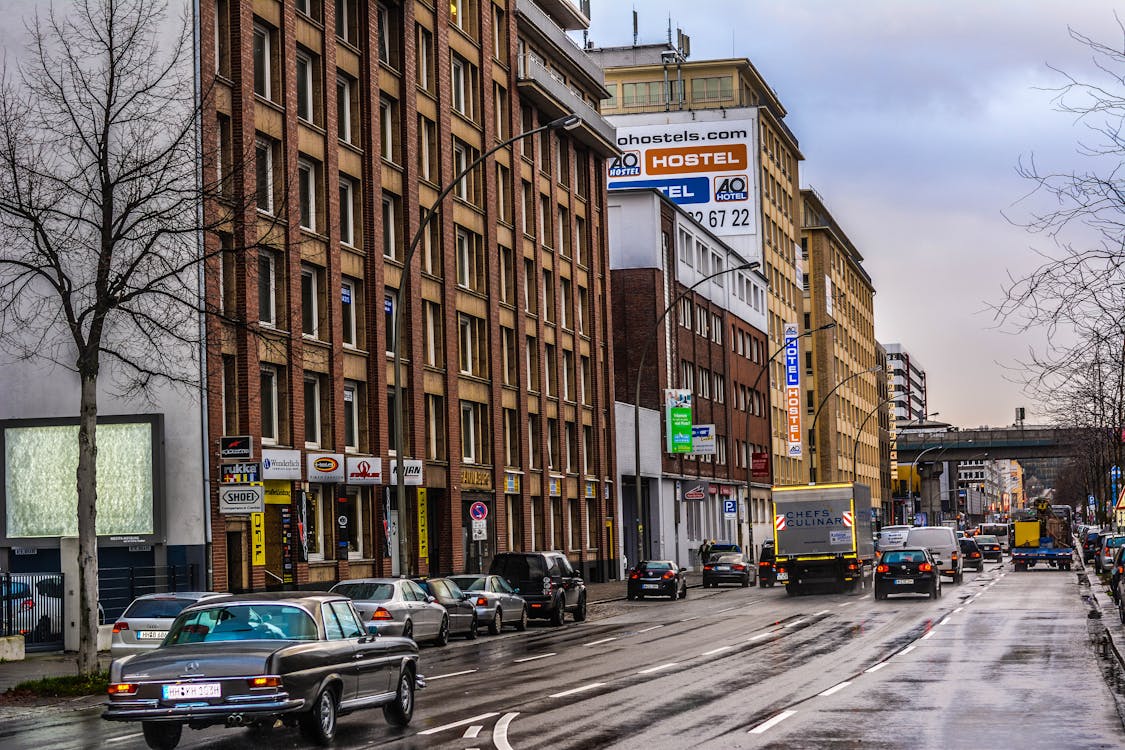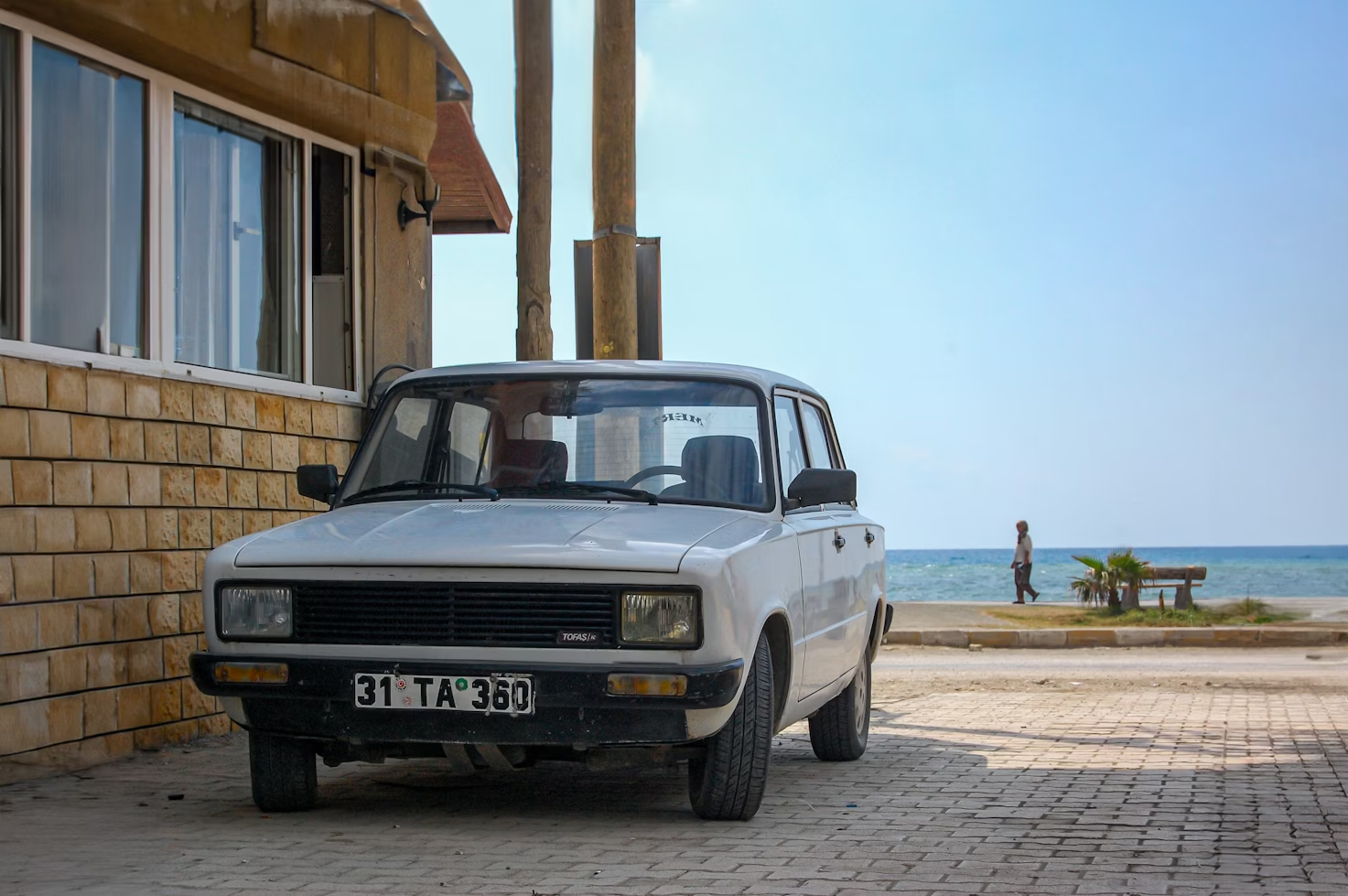Hostels have long been the go-to accommodation for travelers seeking affordability and a chance to meet like-minded adventurers. They’re not just places to sleep—they’re hubs for social connections and unique cultural experiences.
- Hostels are a budget-friendly choice for travelers.
- They offer a chance to meet people with similar interests.
- Many hostels focus on creating a social atmosphere.
- Guests can experience local culture through events or activities.
- They’re more than just a place to sleep—it’s about connection.
Fast forward to 2025, and hostels are evolving in exciting ways to meet the changing needs of modern travelers. From sustainability-focused designs to advanced amenities, hostels are raising the bar without losing their budget-friendly appeal. If you’re planning your next trip, the future of hostels might just surprise you.
Technological Integration: The Rise of Smart Hostels

The hostel experience has always been about community and affordability, but technology is taking it to the next level. In 2025, smart hostels are transforming convenience and comfort for modern travelers. From automated systems and personalized tech solutions to easy ways to connect with others,booking a hostel has never been more exciting. Let’s explore how these smart hostels are changing the game.
Seamless Digital Experiences
Hostels around the world are adopting digital check-ins and smart key cards to make traveling more convenient and efficient. These innovations are transforming the guest experience by eliminating long waits and simplifying access to hostel amenities. Here’s how they work:
- Digital check-ins allow travelers to use their smartphones to bypass paperwork and avoid face-to-face delays at reception.
- Smart key cards provide multiple functions, including opening room doors, granting access to shared spaces, and even serving as payment tools for on-site cafés.
- These technologies reduce operational costs for hostels, enabling them to invest in better amenities and services.
Smart Dormitory Innovations
Smart dormitories are designed to cater to the needs of today’s tech-savvy travelers, offering convenience and customization at your fingertips. These modern features create a seamless and comfortable experience:
- You can adjust room temperatures easily using climate control systems through wall panels or your phone, creating the perfect sleeping environment with just a tap.
- Smart lighting provides dimmable illumination that adapts to your needs, whether it’s for a late-night reading session or preparing for restful sleep.
- Integrated charging stations for laptops, phones, and other gadgets ensure you stay powered up without the hassle of searching for outlets or carrying bulky chargers.
Community-Focused Apps
Building connections is central to the hostel experience, and technology is making it easier than ever with dedicated apps designed to enhance traveler communities. These apps actively help travelers by:
- Allowing them to discover and join local events or activities hosted in or near the hostel.
- Helping them schedule hangouts or trips directly with other guests through their devices.
- Enabling them to share experiences, such as great restaurants or scenic hiking spots, quickly and easily.
- Providing features like ticket booking and integrated maps to streamline planning and eliminate the need for multiple tools.
Online social spaces don’t just enhance your travel experience—they create a continuous loop of shared adventures. Eventhe best Lindos Greece hotels are getting in on the trend, with hostels and accommodations experimenting with guest-centered offerings to foster connection and community.
Sustainability As A Cornerstone

As travelers grow more mindful of their environmental impact, sustainability is driving hostel evolution in 2025. Hostels are rethinking operations to embrace a greener future, from eco-friendly construction to waste reduction initiatives. Sustainability is no longer an add-on—it’s central to hostel design and management.
Eco-Friendly Materials And Furnishings
Many hostels are embracing eco-friendly construction by using recycled and sustainable materials, creating spaces that are both environmentally conscious and visually appealing. Here are some key ways they’re making a difference:
- They craft bunk beds from reclaimed wood, use bamboo for flooring, and incorporate upcycled furniture, reducing waste while adding a natural warmth to the design.
- Builders install energy-efficient windows, apply low-VOC paints, and use insulation made from recycled materials to ensure properties are environmentally friendly from the start.
- Hostels are adding green walls (living plant walls) that not only improve indoor air quality but also bring a touch of nature to the interiors.
Energy Efficiency In Operations
Energy efficiency is a key element of sustainable practices in modern hostels, helping to reduce costs while integrating seamlessly into daily operations. Hostels are adopting innovative solutions to conserve energy and maintain guest comfort. Here are some ways they are achieving this:
- Many hostels install solar panels to harness clean, renewable energy, especially in sunny locations, where they can generate a substantial portion of their electricity needs.
- They use smart heating and cooling systems that adjust based on room occupancy, ensuring energy is only used when needed.
- Motion-sensitive LED lighting is commonly implemented to prevent unnecessary energy consumption in unoccupied spaces.
Waste Reduction Practices
Hostels are taking significant steps towards sustainable waste management, focusing on reducing plastic use and improving recycling efforts. Here’s how they’re making a difference:
- Hostels are eliminating single-use plastics by using biodegradable toiletries, refillable soap dispensers, and reusable dining supplies like stainless steel cutlery and glass cups.
- They promote efficient waste segregation by placing easy-to-follow recycling bins in common areas, making it simple for guests to sort their trash responsibly.
- Many hostels are embracing composting, turning food waste into valuable resources for on-site herb gardens or to share with local farmers.
Hostels are embracing sustainability with eco-friendly initiatives like water refill stations to reduce plastic waste. By prioritizing green practices, they’re setting new standards for eco-conscious travel, allowing you to explore the world responsibly.
Evolving Social Spaces
Hostels are evolving to meet the needs of 2025 travelers, and their social spaces are getting a fresh update. These areas are now dynamic, multipurpose hubs designed to encourage connections and community. Here are two trends shaping their evolution.
Modernized Communal Kitchens
Hostel communal kitchens are evolving into modern, vibrant spaces designed to enhance the cooking and cultural exchange experience for guests. These upgraded kitchens are no longer simple setups but are equipped with advanced features and thoughtful designs that promote interaction and creativity.
- Hostels now include state-of-the-art appliances, such as induction cooktops, convection ovens, and high-powered microwaves, to make cooking easy and enjoyable.
- Open kitchen layouts encourage guests to cook side by side, creating opportunities to share recipes, techniques, and cultural traditions.
- Guests can participate in hostel-hosted events like weekly international cooking nights, where they prepare and share dishes from their home countries, fostering connections and memories.
- These kitchens serve as hubs for social interaction, where travelers bond over shared meals, new flavors, and conversations about cuisine from around the world.
Co-Working And Multi-Functional Areas
Hostels are increasingly catering to digital nomads and freelancers by offering thoughtfully designed co-working spaces that balance functionality and comfort. These spaces are helping remote workers stay productive while enjoying a welcoming and creative atmosphere. Here’s what these hostels now provide:
- Ergonomic Workspaces: Hostels equip co-working areas with ergonomic seating, fast Wi-Fi, and plenty of power outlets to meet the needs of remote workers.
- Enhanced Amenities: Many hostels go the extra mile by offering meeting rooms, video conferencing spaces, and even free workshops for guests.
- Flexible Multi-Use Spaces: Hostels create multi-functional areas that adapt throughout the day, such as transforming morning lounges into evening movie zones or intimate concert venues.
- Biophilic Design Elements: They incorporate natural light, plants, and calming decor, offering inviting environments that feel more like a creative retreat than a traditional office.
Hostels are perfect for remote workers seeking productivity and community while traveling. By 2025, they’ll offer unique experiences for every traveler—from foodies to freelancers—while staying true to their community-focused spirit.
Personalized Hostel Experiences

The days of generic, one-size-fits-all hostels are fading. By 2025, hostels will cater to all kinds of travelers, from thrill-seekers to mindful wanderers. New trends ensure your stay matches your interests. Let’s explore how personalized experiences are shaping modern hostels.
Hostels Catering To Adventure Travelers
Adventure-focused hostels are redefining travel by offering more than just a place to sleep—they provide unique experiences tailored for thrill-seekers. These hostels combine comfortable accommodations with easy access to outdoor activities, creating the perfect base for adventurous travelers. Here’s what makes them stand out:
- They partner with local tour operators to offer guided hikes, bungee jumping, and white-water rafting.
- Guests can enjoy on-site equipment rentals, eliminating the need to carry bulky gear.
- They feature activities like mountain climbing with expert guides and kayaking through unexplored waters.
Wellness-Focused Hostels
Wellness-focused hostels are redefining travel by providing guests with opportunities to prioritize their mental and physical well-being in calming, restorative environments. These hostels combine relaxation, mindfulness, and healthy living for a truly rejuvenating experience.
- They offer serene meditation gardens and yoga studios, creating peaceful spaces for guests to relax and recharge.
- Guests can enjoy activities like morning yoga by the beach or evening meditation under the stars, promoting mindfulness throughout their stay.
- Dining options focus on healthy living, with menus full of organic, locally sourced ingredients, including fresh smoothies, vegan entrees, and gluten-free snacks.
- Many hostels host wellness workshops such as aromatherapy classes or sound healing sessions, inspiring guests to carry these practices into their daily lives.
Digital Nomad-Friendly Stays
As more travelers blend work with adventure, hostels are adapting to meet the needs of digital nomads by providing spaces designed for productivity without losing their vibrant social atmosphere. These hostels offer amenities that make remote work seamless and enjoyable.
- They provide ergonomic workstations, high-speed internet, and co-working spaces to ensure a comfortable and efficient work environment.
- Guests can stay productive by answering emails at spacious desks or collaborating in soundproof meeting pods.
- Hostels foster a strong sense of community by hosting networking events, such as skill-sharing sessions and pitch nights, to encourage collaboration and connection among guests.
In 2025, the rise of personalized hostel experiences will cater to every kind of explorer, offering both tailored adventures and moments of rejuvenation. Whether you’re chasing mountains, inner peace, or professional goals, there’s a hostel designed just for you.
Safety And Security Advancements

Hostels in 2025 are making big strides in protecting the well-being of their guests. With new technology and improved safety measures, you can feel more at ease while staying in shared spaces. Here’s how hostels are improving safety and security through enhanced technology and staff preparation.
Enhanced Surveillance And Monitoring
Modern hostels are enhancing safety for travelers by adopting advanced surveillance systems. These technologies, powered by AI, are designed to offer greater security and peace of mind during your stay. Here are the key features:
- AI-powered security cameras actively monitor the premises and detect unusual activity in real-time.
- Real-time alerts notify staff immediately to address potential issues as they arise.
- Facial recognition technology identifies unauthorized individuals in restricted areas, improving overall security.
- Predictive analytics helps prevent incidents before they occur by analyzing patterns and anticipating risks.
Digital Key Systems
Losing a hostel room key could soon become a thing of the past. By 2025, many hostels are adopting app-based or RFID-enabled digital key systems, offering a more secure and seamless way to access your room and shared spaces. Here’s what to expect:
- Receive a digital key on your smartphone or wristband after booking your stay, giving you access to your room, lockers, and communal areas.
- Use RFID cards or bracelets as easy alternatives if you don’t have a smartphone, ensuring convenience for all guests.
- Enjoy increased security with systems that eliminate the risks of lost or duplicated physical keys.
Staff Training For Emergency Scenarios
Hostels in 2025 are prioritizing safety by focusing on comprehensive emergency preparedness training for their staff. This proactive approach equips teams to handle various challenges effectively and ensures guest welfare remains a top priority.
- Hostels conduct regular emergency drills in partnership with local emergency services to refine response protocols.
- Staff receive training to handle natural disasters, medical emergencies, and conflict resolution between guests.
- Smaller hostels hire specialists with expertise in guest welfare and crowd management to enhance safety measures.
- These initiatives empower hostel teams to respond swiftly and confidently to unexpected situations, ensuring guests are always in capable hands.
With these advancements in safety and security, hostels in 2025 are proving that affordable travel doesn’t have to compromise peace of mind.
Final Thoughts
Hostels in 2025 are transforming travel with technology, sustainability, and personalized experiences. Featuring smart features, eco-friendly designs, and vibrant social spaces, they offer more than just a stay—it’s a lifestyle. Whether you’re a digital nomad or an adventurer, hostels now provide co-working spaces and curated activities like never before.
- Add more smart tech like keyless entry and app-based bookings to make staying easier.
- Create more eco-friendly options, such as solar power and water-saving systems, to attract conscious travelers.
- Offer flexible, affordable co-working spaces for remote workers to boost productivity during their stay.
- Host regular events, like cooking classes or group tours, to build a stronger sense of community.
- Expand personalized services, like tailored itineraries or activity suggestions, to meet different travel styles.
As these changes unfold, they reflect a commitment to making travel more accessible, enriching, and responsible. Hostels aren’t just keeping pace with traveler needs; they’re setting the tone for modern, community-centered travel.





